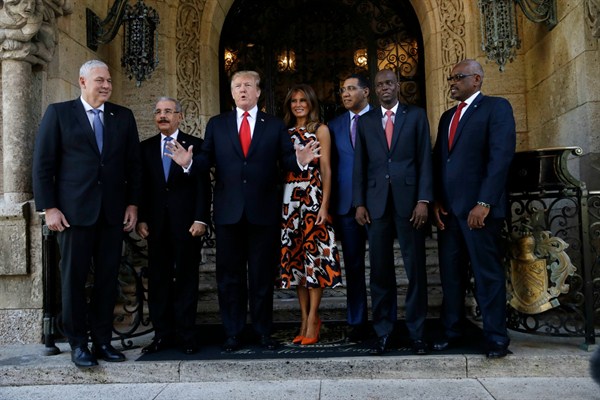U.S. President Donald Trump held a meeting last Friday with five Caribbean leaders who have publicly sided with the United States in backing the self-proclaimed presidency of Venezuelan opposition leader Juan Guaido. In return for their support, the U.S. is promising investment in their economies, a powerful diplomatic tool that may entice other Caribbean countries to break off their longstanding ties with President Nicolas Maduro’s government in Caracas. In an interview with WPR, Robert Looney, a distinguished professor at the Naval Postgraduate School in Monterey, California, discusses the mounting support for Guaido in the Caribbean and its implications for the Venezuela crisis and for regional integration efforts.
World Politics Review: Why has the Venezuela crisis proved so divisive for Caribbean states? Why have some governments in the region been resistant to backing Guaido?
Robert Looney: There is general agreement throughout the Caribbean region that a major catastrophe is occurring in Venezuela and that its last election was seriously flawed. The Caribbean states’ public differences center more on whether, and to what extent, outside interference to assure Guaido the presidency is appropriate at present. Six countries—Haiti, the Dominican Republic, the Bahamas, Jamaica, Guyana and Saint Lucia—are pro-interference and have supported a January 2019 resolution at the Organization of American States, or OAS, refusing to recognize the legitimacy of the Maduro presidency. Three other countries—Dominica, St. Vincent and the Grenadines and Suriname—oppose interference and acknowledge Maduro’s legitimacy. The remaining Caribbean states—St. Kitts, Trinidad and Tobago, Antigua and Barbuda, Barbados and Belize—are neutral on the matter.

